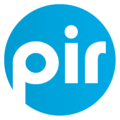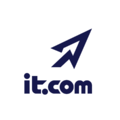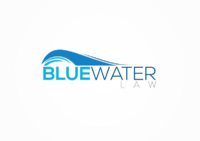Main Page: Difference between revisions
No edit summary |
No edit summary |
||
| Line 21: | Line 21: | ||
<div style="clear:both;"></div> | <div style="clear:both;"></div> | ||
<div style="width:49.5%;float:left;"> | <div style="width:49.5%;float:left;"> | ||
<div style="background:#61A376; font-family:sans-serif;font-size:100%;font-weight:bold;text-align:left;color:#F2EFEA;height: 1.5em;margin:.2em 0 .1em 0; padding:.5em .25em .5em .75em;border-radius:5px;">Featured Article, March | <div style="background:#61A376; font-family:sans-serif;font-size:100%;font-weight:bold;text-align:left;color:#F2EFEA;height: 1.5em;margin:.2em 0 .1em 0; padding:.5em .25em .5em .75em;border-radius:5px;">Featured Article, March 24, 2022</div> | ||
<div style="padding:.5em 0 0 0;width:95.5%;"> | <div style="padding:.5em 0 0 0;width:95.5%;"> | ||
'''[[Domain Locking]]''', sometimes referred to as [[Registry]] or [[Registrar]]-locking, is the service provided by registries or registrars to "lock" a domain name so that it cannot be [[Inter-Registrar Transfer Policy|transferred]] or altered without the explicit permission of the registrant. If a lock is in place, the registrant must request that the name be "unlocked" before such changes can be made. In February 2021, the GNSO initiated a [[Policy Development Process]] to review ICANN's transfer policies. It was spurred in part by policy considerations associated with ICANN's [[Temporary Specification for gTLD Registration Data|Temporary Specification]] and [[Expedited Policy Development Process on the Temporary Specification for gTLD Registration Data (EPDP)|Expedited Policy Development Process]] in response to the EU [[General Data Protection Regulation|GDPR]]. | |||
<br/> | <br/> | ||
</div> | </div> | ||
Revision as of 15:24, 24 March 2022
| Welcome to ICANNWiki |
|
Domain Locking, sometimes referred to as Registry or Registrar-locking, is the service provided by registries or registrars to "lock" a domain name so that it cannot be transferred or altered without the explicit permission of the registrant. If a lock is in place, the registrant must request that the name be "unlocked" before such changes can be made. In February 2021, the GNSO initiated a Policy Development Process to review ICANN's transfer policies. It was spurred in part by policy considerations associated with ICANN's Temporary Specification and Expedited Policy Development Process in response to the EU GDPR.
ICANNWiki is a not-for-profit organization dedicated to supporting the Internet community's collaborative development of wiki articles on ICANN and Internet Governance-related topics. The wiki provides neutral, third-party information for ICANN meeting attendees and Internet citizens at large. It is an open platform grounded in wiki values. Want to help? Create an account today!
ICANNWiki is not ICANN. ICANNWiki is a separate non-profit organization independent from ICANN. This website is operated by the ICANNWiki organization and any donations made to the ICANNWiki website are for the ICANNWiki organization only.






